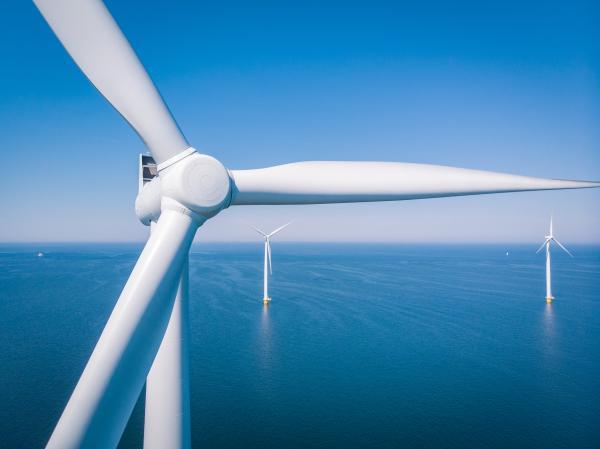
- The European Investment Bank and Ørsted have signed a €400 million framework loan agreement supporting the construction of new wind farms.
- Designed to provide more green electricity to the EU grid, the agreement is aligned with the RePowerEU initiative to support Europe’s energy transition.
- The financing is expected to support the roll-out of wind energy capacity, potentially including wind farms off the Polish coast and Germany’s North Sea coast.
The European Investment Bank (EIB) and Ørsted have signed a €400 million framework loan agreement to finance new wind energy production. By supporting Europe’s transition to electricity from renewables, the agreement aligns with the goals of the RePowerEU initiative.
“We’re delighted to continue our longstanding partnership with Ørsted — as this is our fifteenth joint project,” commented EIB Vice-President Thomas Ostros. “Ørsted realises the necessity and urgency of the energy transition, which is also one of our own key priorities. Building renewable energy capacity will remain crucial in years to come, to make sure we can sustainably and securely reach our climate goals.”
“We’re very happy to once again work with the EIB to support the build-out of renewable energy in Europe and the long-term financing of Ørsted’s activities,” said Kasper Kiim Jensen, Ørsted Vice President and Head of Treasury and Capital Planning.
This €400 million tranche is the first in a larger facility of up to €1.2 billion approved by the EIB to help Ørsted roll out more renewable power projects in the North Sea and the Baltic Sea. Ørsted plans to allocate these first funds to the Borkum Riffgrund 3 wind farm in the German North Sea.
Background information
The European Investment Bank finances sound investment to pursue EU policy goals. In 2022 alone, the EIB made over €800 million in financing available for projects in Denmark, including in the medical research and energy transition sectors.
Ørsted develops, constructs and operates offshore and onshore wind farms, solar farms, energy storage facilities, renewable hydrogen and green fuel facilities, and bioenergy plants. Ørsted is recognised on the CDP Climate Change A List as a global leader on climate action, and was the first energy company in the world to have its science-based net-zero emissions target validated by the Science Based Targets initiative (SBTi).